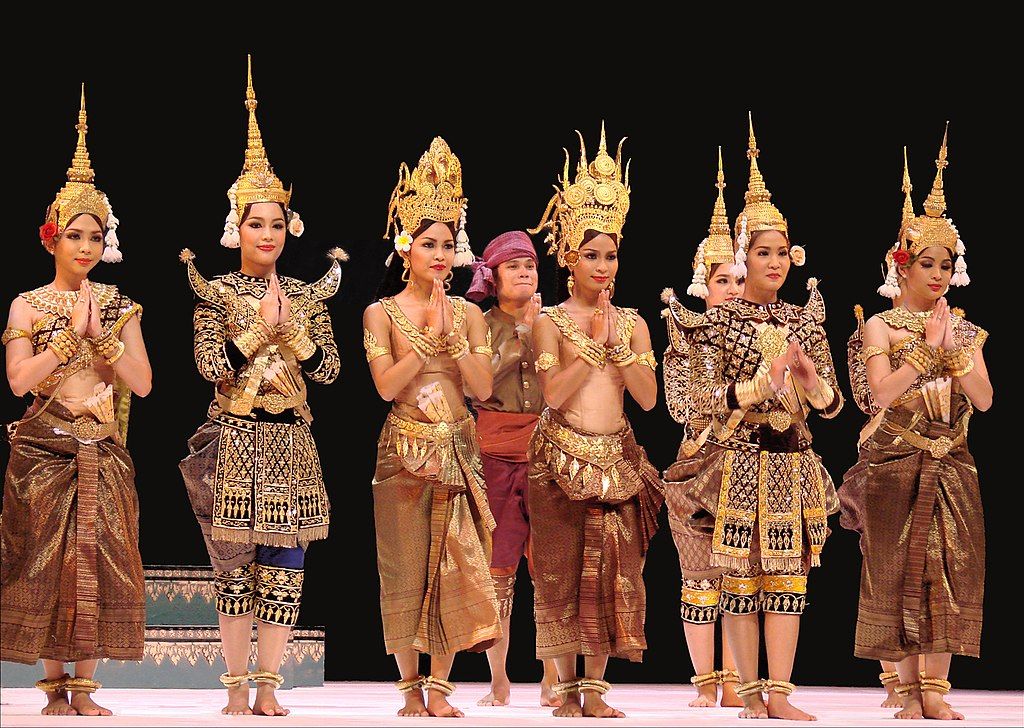How to Respect Cambodian Culture and Customs while Travelling - Behavior and Etiquette Guide for Tourists Bound for Cambodia

While Cambodia is often compared to Thailand and Vietnam, it is a land with its own culture, rituals and customs. Although tourists are unlikely to face jail time or arrest if they do not respect local traditions, unlike some Middle Eastern countries, it is crucial to learn more about local culture before a visit. From knowing how to dress for a temple visit to wining and dining faux pas, here's how you can behave appropriately during a getaway in Cambodia.
Greeting Locals
Most Cambodians greet one another with a gesture named "Som Pas", which is similar to the Sri Lankan "Ayubowan" in that it involves bringing the hands together as if in prayer and bowing slightly. If a local performs the Som Pas as a way to welcome or greet a tourist, it is important to return the gesture. Although it is not essential, tourists may also want to learn how to say "Choum reap sor", which means "hello" in the local tongue. Most locals will utter these words as they perform the Som Pas. Shaking hands during the first meeting is considered inappropriate during a first-time interaction, especially if it involves the opposite sex. Physical touch is reserved for intimate and familial relationships in Cambodia, so stretching out one's hand is not always a good move.
Filial Piety and the Correct Salutation
Using Mr and Mrs is a very common practice in Cambodia, where it is usually followed by the individual's first name rather than the surname. This is due to the fact that the surname often reminds Cambodian families of older members of their family, as the last name is a derivative of their ancestors. Lok (Mr) and Lok Srey (Mrs) are often followed by their first name. Elders reserve a special place in Cambodian society, and most locals will refer to older men using terms of endearment such as grandfather, uncle or brother while calling older women grandma, aunty or sister.
Body Language
The human body and its various parts are considered high and low according to Cambodian culture, and thus, more respect is reserved for someone's head, while feet are considered lower in importance. This is why touching someone's head is highly offensive to locals, as it is associated with intelligence and spirituality. Tourists should also keep in mind that PDA or public displays of affection are frowned upon in public places, so avoid hugging and kissing outside the confines of your FCC Angkor hotel room. PDA should also be kept at a minimum when at public spaces as the local populace is very conservative in this regard.
Temple Visits
As a predominantly Buddhist country, Cambodians take their spirituality and the iconic temples and shrines within its confines very seriously. Monks are among the most respected members of society and are treated with great reverence. Tourists must dress modestly when visiting temples and religious sites all across Cambodia and remove footwear before entering such spaces. Photographing monks is also forbidden unless you ask for permission while touching and climbing Buddha statues and religious buildings is also prohibited. Physically interacting with monks is also a great offence in Cambodia, while pointing to any sacred object with one's feet is also interpreted as a rude gesture.
Dining Etiquette
Cambodians consider the left hand "unclean" and only fit for sanitation purposes, so one must eat with the right hand when not using utensils when dining at Angkor Wat hotels or other places. Pointing with chopsticks is also rude, and using chopsticks to serve yourself must also be avoided, as a serving spoon must be used instead. Finishing all the food on the plate is ideal when dining with a local family, as leaving leftovers is considered wasteful.
